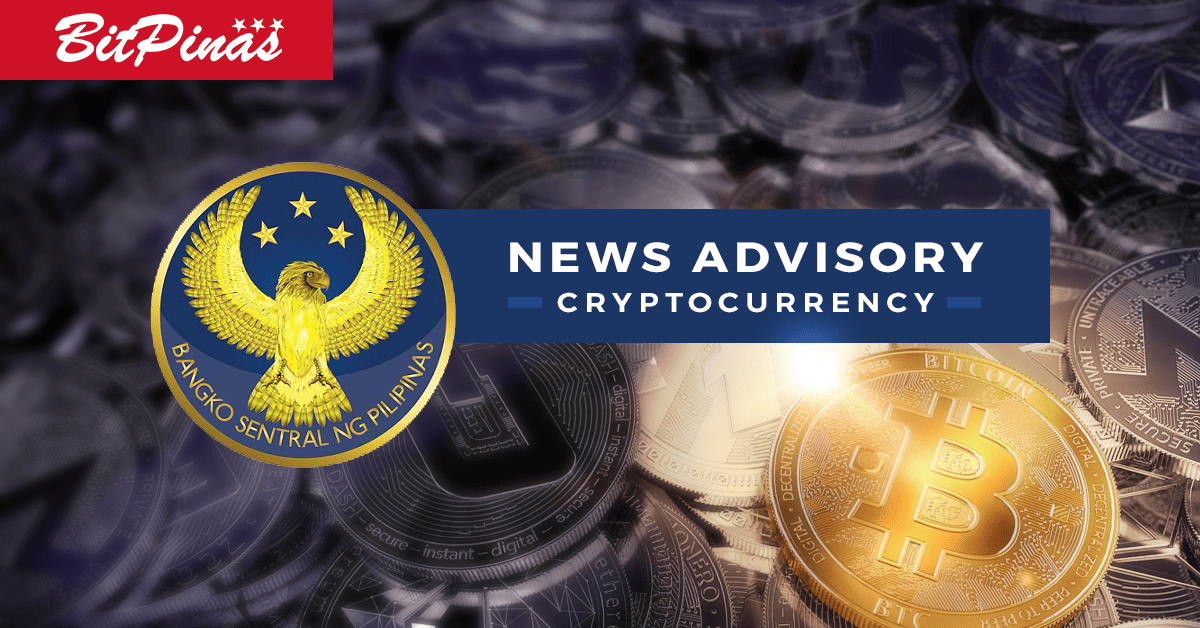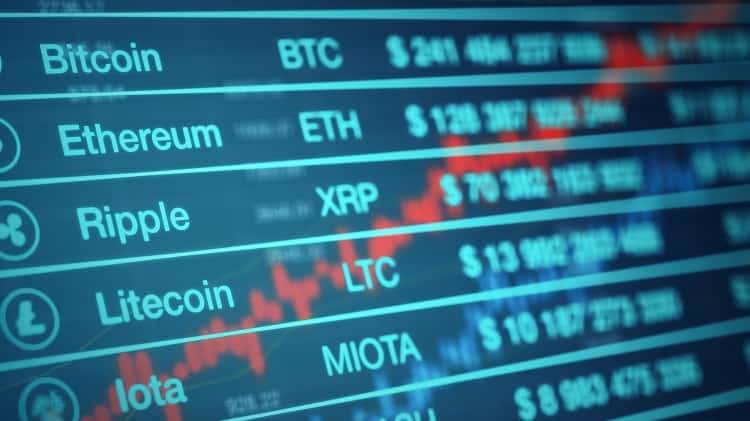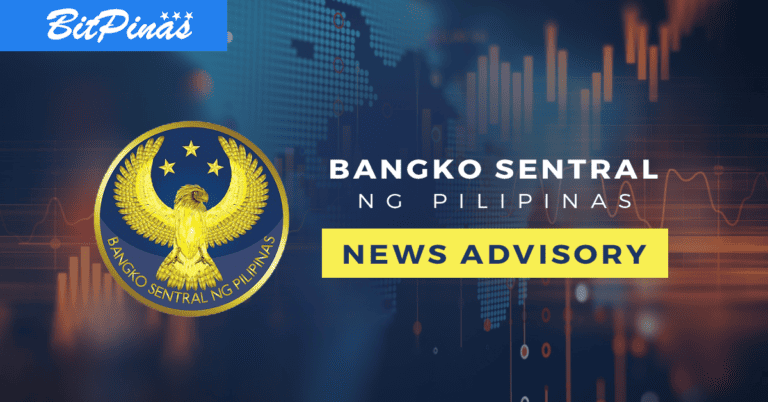BSP Expects Increase in Cryptocurrency Transactions in the Philippines
The total transaction volume from January to September 2020 was 7.2 million. This is a 36% increase versus the volume recorded within the same period in 2019 (5.3 million).

March 9, 2021 — The Bangko Sentral ng Pilipinas is expecting cryptocurrency transactions to continue to increase this year after increasing five-fold in 2020 mainly because of the surge in the crypto prices and broadening regulations.
Virtual asset service providers in the Philippines processed around $1.5 billion (Php 76 billion) between January to September 2020, which is five times more than what was recorded within the same time frame in 2019 ($288 million or Php 14 billion), PhilStar reported.
Meanwhile the total transaction volume from January to September 2020 was 7.2 million. This is a 36% increase versus the volume recorded within the same period in 2019 (5.3 million).
According to BSP’s Melchor Plabasan, the growth in volume can be attributed to the increase in the price of Bitcoin and other cryptocurrencies. Cryptocurrencies, he said, has increasingly become a store of value and this has attracted users in developing countries like the Philippines, PhilStar added.
As such, Plabasan said the BSP anticipates future adoption of virtual currencies in payments and remittances. “This follows from an observed growth in virtual currency business activities from BSP-registered exchanges in the past few years.” As of November 30, 2020, there 17 licensed virtual asset service providers: Aba Global (Coex Star), Appsolutely, Atomtrans, Betur (Coins.ph), Bexpress, BloomSolutions, Coinville, Etranns (Gow Exchange), Finchain, Fyntegrate (PDAX), iRemit, Moneybees, Philippine Digital Financial Assets Exchange Inc, Rebittance (SCI Ventures), TopJuan Tech, WIBS PHP, and Zybi Tech (Juan Cash, Juan Exchange).
Data on peer-to-peer marketplaces like Paxful also mirrored the increase in volume of Bitcoin transactions in the Philippines. The entrance of Binance P2P and increase in activity surrounding Play-To Earn are key developments in the Philippine crypto ecosystem in 2020.
A portion of crypto transactions in the Philippines might also not be in the data of P2Ps and the exchanges because traders might have already chosen to trade amongst themselves.
The BSP defines “virtual currency” as a type of digital currency created by a community of online users, is stored in electronic wallets, and generally transacted online.
After releasing its Updated Guidelines early this year, the BSP has since begun referring to “virtual currencies” as “virtual assets” while “virtual currency exchanges” or “VCEs” are now referred to as “virtual asset service providers” or “VASPs”. This is in line with the guidelines released by the Financial Action Task Force or FATF, a global standard-setting body for anti-money laundering.
In an interview with BitPinas, the BSP reiterated its position on cryptocurrencies. While it views them as having the potential to transform the provision of financial services, it is aware of the risk it poses to the financial system and especially to less informed users. “The BSP does not, in any way, endorse virtual currencies as legal tender, store of value, or investment vehicle. The BSP wants consumers to understand that investing in virtual currencies, due to its volatility, presents enormous risks which might result in financial losses, and there is no guarantee for recovery nor recourse.”
This article is published on BitPinas: BSP Expects Increase in Cryptocurrency Transactions in the Philippines





